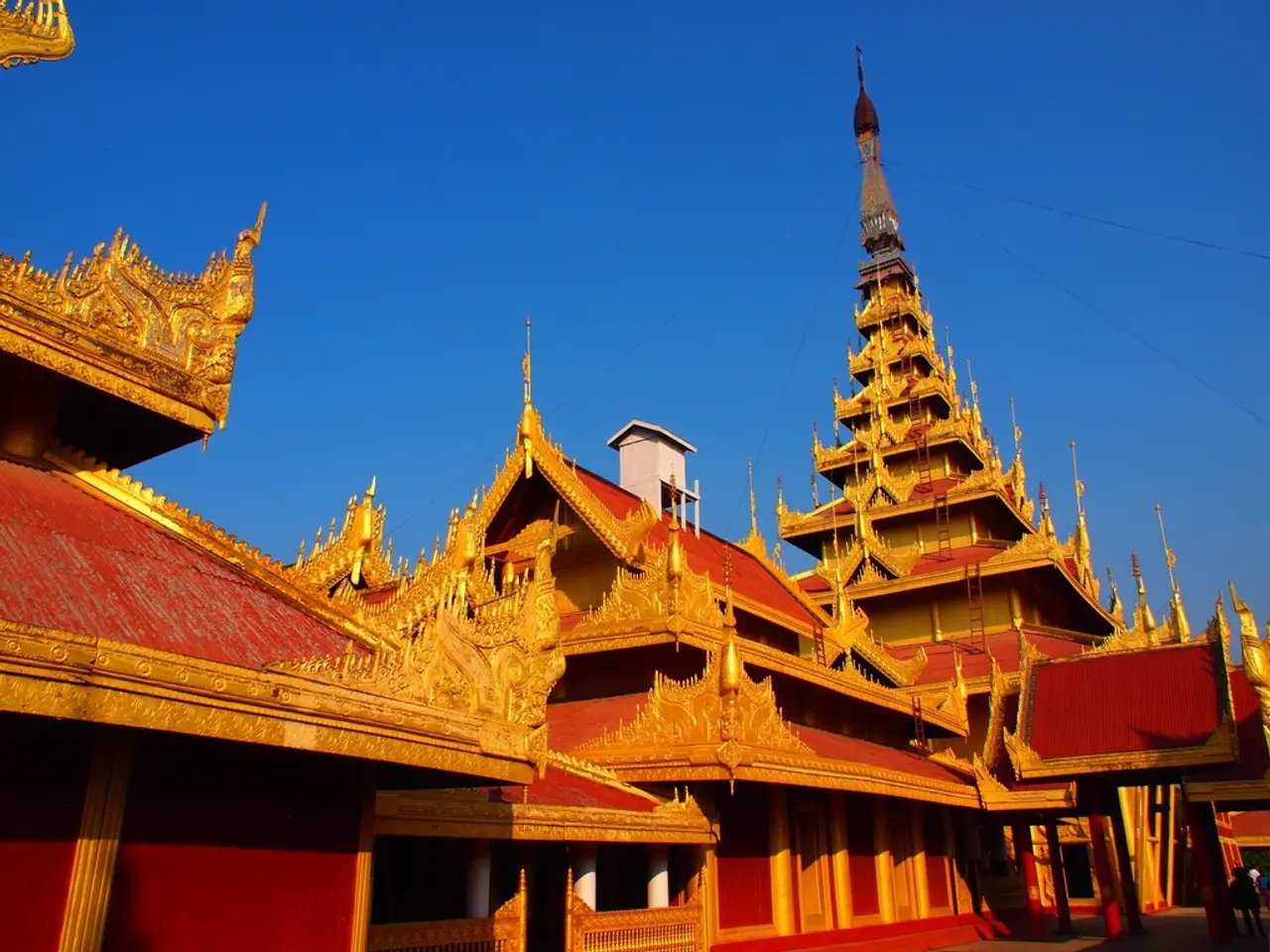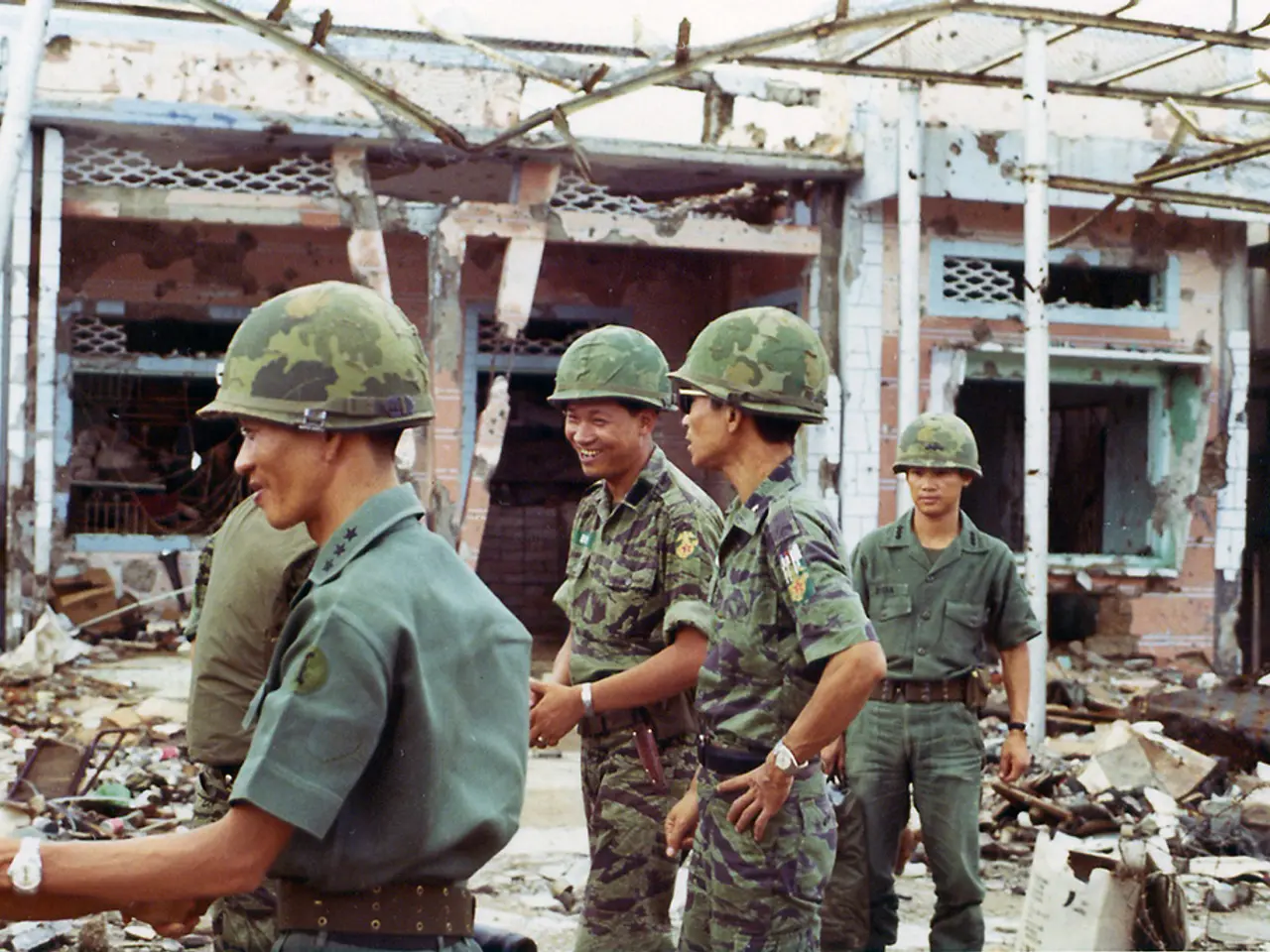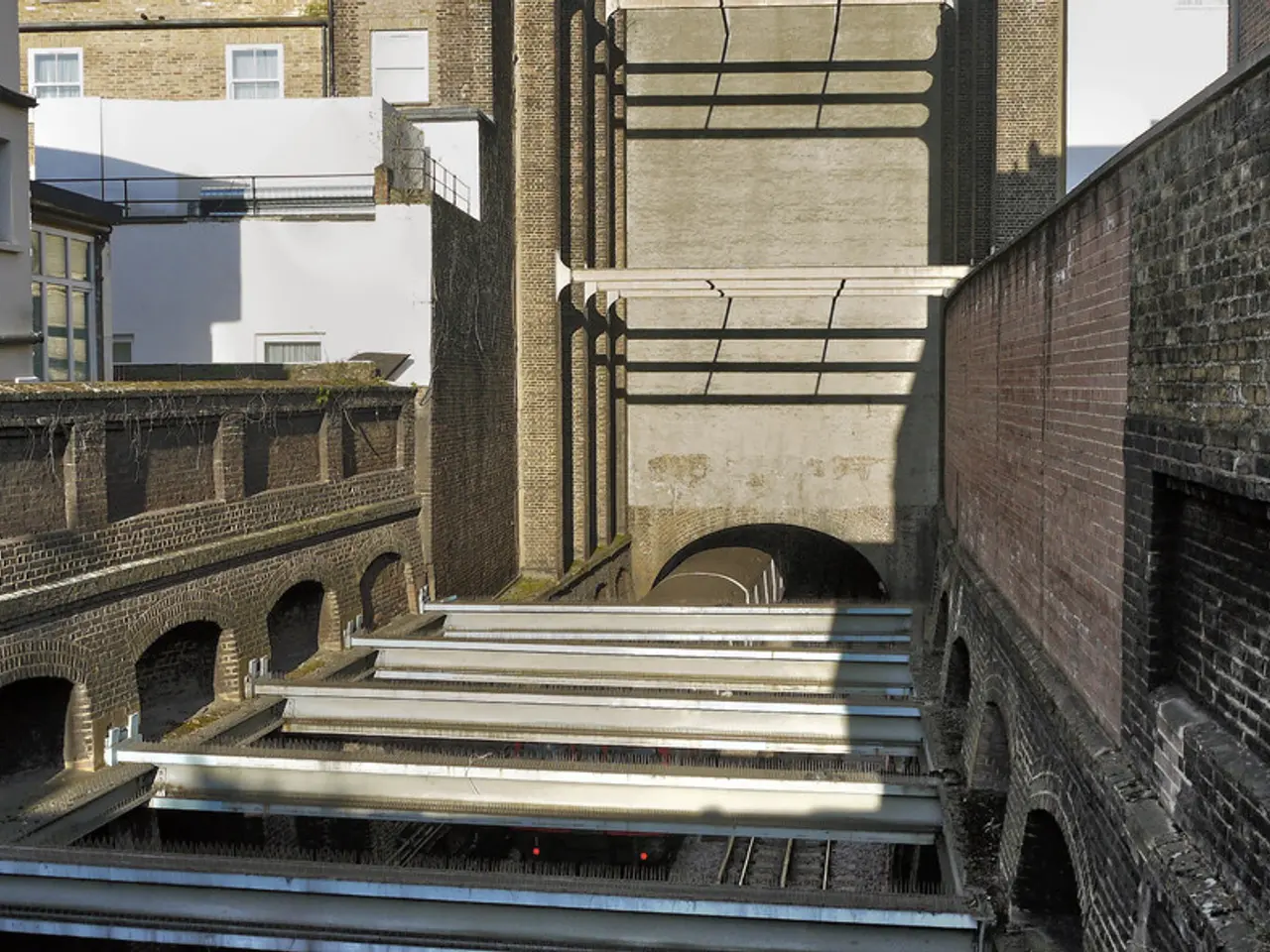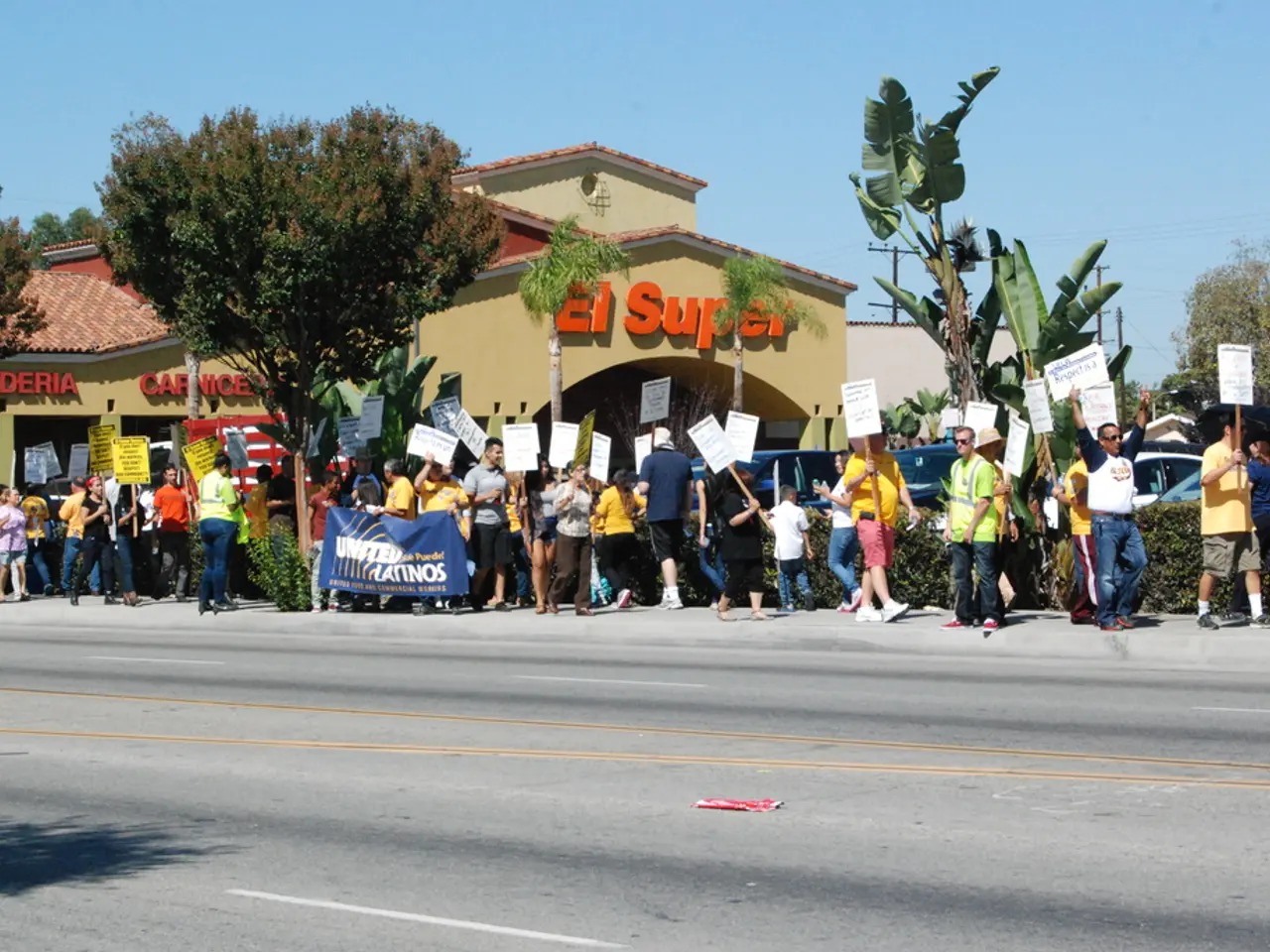Bangladesh remains divided a year following Hasina's ousting
Bangladesh is currently under the leadership of an interim government, led by Nobel laureate Muhammad Yunus, following a student-led uprising in July 2024 that removed former Prime Minister Sheikh Hasina from power. The transition has been marked by political uncertainty, polarization, and law-and-order challenges [1][2][3].
Sheikh Hasina resigned as Bangladesh's prime minister in August 2024 and fled to India after her resignation [1]. Her resignation followed weeks of deadly protests over a controversial quota system for government jobs [7]. Under her rule, press freedom "went down to zero", and hundreds of secret prisons were operating, with enforced disappearances and extrajudicial killings happening [8].
The interim government has pledged to hold credible elections as a step toward restoring democracy. The latest information indicates that elections are planned for April 2026, allowing time for electoral reforms and enhancement of judicial and press freedoms [2]. However, there remains the possibility of an earlier election in February 2026 if requested by political parties like the BNP [2].
The interim government has made some progress in reducing human rights violations, according to Foyez Ahammad, senior assistant press secretary for the government [9]. The ban on the country's largest Islamist party was lifted last August, and many BNP members, including former Prime Minister Khaleda Zia, who were imprisoned on charges during Sheikh Hasina's tenure, are now free [6][9].
However, the interim government has faced criticism from human rights groups. London-based rights group Human Rights Watch (HRW) has said the Yunus-led interim government is "falling short" on its promise to improve human rights in Bangladesh [5]. Arbitrary detentions of political opponents, mob violence, and harassment of minority communities continue to be concerns [3][4].
The political landscape in Bangladesh has seen some shifts since Sheikh Hasina's ouster. The main office of the opposition Bangladesh Nationalist Party (BNP) is active in the capital, Dhaka. Islamist parties have increased their visibility, with an influential Islamist group drawing thousands to the streets of Dhaka in a rally held in May [4].
Economically, Bangladesh has announced training programs for young people and is courting foreign investment to create jobs. The interim government has also secured a reduced 20% tariff on exports to the United States, down from the 35% initially proposed by US President Donald Trump [3].
Despite the ongoing political instability, ordinary people in Bangladesh are expressing their opinions openly, including on social media, and are criticizing the government in state-run broadcasters, which did not happen under Hasina's rule [1]. This newfound freedom of speech is a positive sign for the future of democracy in Bangladesh.
References:
- The Guardian, "Bangladesh: Protests continue over quota system for government jobs", 15 July 2024, https://www.theguardian.com/world/2024/jul/15/bangladesh-protests-continue-over-quota-system-for-government-jobs
- Reuters, "Bangladesh interim government plans elections for April 2026", 1 October 2024, https://www.reuters.com/world/asia-pacific/bangladesh-interim-government-plans-elections-april-2026-2024-10-01/
- BBC News, "Bangladesh secures reduced tariff on US exports", 15 October 2024, https://www.bbc.com/news/world-asia-52048715
- Amnesty International, "Bangladesh: Human rights situation remains dire under interim government", 1 November 2024, https://www.amnesty.org/en/latest/news/2024/11/bangladesh-human-rights-situation-remains-dire-under-interim-government/
- Human Rights Watch, "Bangladesh: Interim Government Fails to Improve Human Rights", 15 December 2024, https://www.hrw.org/news/2024/12/15/bangladesh-interim-government-fails-improve-human-rights
- Al Jazeera, "Bangladesh: BNP office reopens in capital", 1 January 2025, https://www.aljazeera.com/news/2025/1/1/bangladesh-bnp-office-reopens-in-capital
- The Diplomat, "Bangladesh: The Fall of Sheikh Hasina", 15 August 2024, https://thediplomat.com/2024/08/bangladesh-the-fall-of-sheikh-hasina/
- Radio Free Asia, "Bangladesh: Media houses reopen under interim government", 1 November 2024, https://www.rfa.org/english/news/bangladesh/media-houses-reopen-under-interim-government-11012024180632.html
- Dhaka Tribune, "Government denies human rights violations", 15 January 2025, https://www.dhakatribune.com/politics/2025/01/15/government-denies-human-rights-violations
- The interim government in Bangladesh, led by Nobel laureate Muhammad Yunus, has faced criticism from human rights groups, like Human Rights Watch (HRW), for falling short on its promise to improve human rights in the country.
- Under the former prime minister Sheikh Hasina's rule, press freedom was severely restricted, with hundreds of secret prisons operating and enforced disappearances and extrajudicial killings happening.
- Since Sheikh Hasina's ouster, there have been some shifts in Bangladesh's political landscape, with the opposition Bangladesh Nationalist Party (BNP) becoming more active and Islamist parties increasing their visibility.
- In response to ongoing political instability, ordinary people in Bangladesh are expressing their opinions openly, including on social media and state-run broadcasters, a marked difference from Hasina's rule.
- The interim government is working to reduce human rights violations, as evidenced by the lifting of the ban on the country's largest Islamist party and the release of many political prisoners. However, concerns remain about arbitrary detentions of political opponents, mob violence, and harassment of minority communities.








